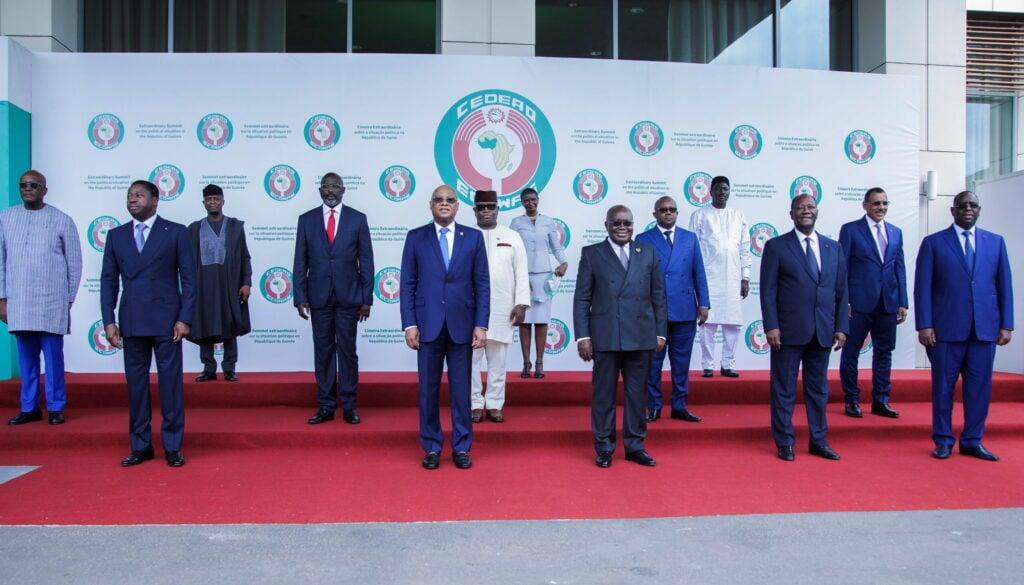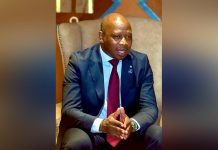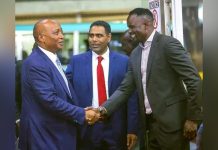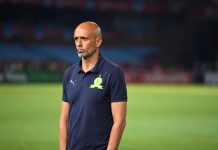Africa-Press – Lesotho. The release of the Pandora Papers on 3 October embarrassed high profile figures around the world, exposing the offshore accounts of 35 world leaders.
According to the International Consortium of Investigative Journalists, it was their most expansive exposé of the secret financial arrangements of the rich and famous to date.
Among the many stories to emerge from the leak were reports that the family of Kenyan President Uhuru Kenyatta have links to 13 offshore companies, including investments in stocks and bonds with one company worth $30m.
The vast sums of money involved naturally encouraged a focus on how the political elite manipulate their positions for personal gain. Both the media and many members of the public rushed to condemn a political class that was, it was suggested, self-serving and morally moribund.
Days before the Pandora Papers broke, a very different story hit the headlines in Malawi. On 30 September, Clement Chiwaya, the respected former Deputy Speaker of the National Assembly, killed himself inside the parliament building.
In one of the saddest and most shocking stories I have covered, it appears that he deliberately entered the building with a gun in order to shoot himself in front of the clerk of parliament.
I will not speculate at length about what happened out of respect for Chiwaya’s family, but as the details filtered out it seems that one of the issues that drove his actions was financial concerns.
In particular, Chiwaya felt he was being made to beg for things – most notably an official vehicle that he had been provided with – that were rightfully his.
In stark contrast to the Kenyattas, this was a politician for whom power had brought neither wealth nor comfort. As regular readers will know, I was planning to use this column for “part two” of a discussion of whether there is such a thing as a good coup.
But learning of Chiwaya suicide while working with Members of Parliament in Lilongwe and reading the coverage of the Pandora Papers, I realised that I wouldn’t be able to concentrate on that topic until I had written about the wealth and poverty of political leaders in Africa.
It wasn’t just the striking contrast between the two stories that captured my attention, but the way in which they reveal two equally important aspects of political life.
We must recognise that politics drives poverty as well as wealth if we want to fully understand why political competition may exacerbate clientelism and corruption in countries like Kenya and Malawi.
One problem with some of the lazier coverage of the Pandora Papers was that it implied all politicians are the same. This is of course not true. The numerous politicians I have met over the last fifteen years can be broken down into roughly five categories, and even this is a gross oversimplification.
Older hopefuls have usually held power at one point in their lives but lost it, and are constantly searching for a way back. At the top are the “monarchs” whose families have been at the heart of power for decades and own a dizzying array of companies, vehicles and properties.
Like the Kenyattas, this relatively small group used their privileged access to the state to amass wealth, but are now so rich they could survive without it.
Next come the Big (Wo)Men who have established themselves as ethnic or regional leaders and been able to translate this into a long career as MPs and ministers.
This group – think of someone like Kalonzo Musyoka in Kenya – are often millionaires but they rarely boast the kind of business empire or offshore holdings of political royalty.
After them come career politicians, who have proved to be extremely successful at getting returned to office as MPs or governors, but never quite made it to the ministerial level.
This group are extremely wealthy, earning a good salary while collecting the regular “sitting allowances” that some international donors and NGOs offer to attend their meetings – but still complain that politics is an expensive game.
In the next category are what I think of as the “yo yos” – the politicians who always stand in elections but tend to win one and lose the next. These figures live a more modest life and are perennially on the lookout for funds.
They tend to be reluctant to go to expensive restaurants unless they know someone else is paying, and regularly tell you that retaining office is as much a financial as a political imperative.
Finally, there are the “hopefuls”, those leaders who don’t have power but have not given up on securing it. Older hopefuls have usually held power at one point in their lives but lost it, and are constantly searching for a way back.
Younger leaders seeking to make their way up the ladder are usually full of ambition and grand dreams but strapped for cash unless they have great personal wealth.
This political hierarchy is important, because the lower down the food chain you go, the greater pressure the cost of politics puts on leaders – and the greater potential for personal ruin.
Running for election is an expensive business, and political parties offer minimal help. Especially for “yo yos” and “hopefuls”, these costs are extremely hard to bear.
I have lost count of the number of unsuccessful politicians whose ambitions brought them close to bankruptcy. Legislators also regularly complain that even though they are very well paid, their salaries do not come close to covering the costs of campaigning.
This may sound like a self-serving narrative designed to deflect criticism from a privileged elite, but the numbers bear it out. Recent research by the Westminster Foundation for Democracy has revealed that just making through the party primary can cost up to $245,000 for MPs in Kenya.
In hotly contested seats, winning the general election means spending the same again. The price of victory is much lower in Malawi, but winning candidates still spend around $36,700 – 140% of an MPs annual salary.
The need to self-finance election campaigns forces candidates to search for diverse sources of finance. I have talked to candidates who sold the land they were hoping to retire on in order to run.
Similarly, Sam Wilkins finds that in Uganda candidates from “across the spectrum” are only able to stand after “saving for years, mortgaging properties, and taking on enormous personal debt.
”
One consequence of this process is that many MPs enter the National Assembly heavily indebted to banks and business backers, or having borrowed money from monarchs and Big Men. This has major implications for national politics.
Those in debt to businessmen and bankers need to make money fast to repay their loans, which encourages MPs to use their positions to create successful businesses or engage in corruption.
Those in debt to senior politicians may not need to pay the money back – but their political backers expect a high degree of loyalty. In turn, this undermines the ability of new legislators to challenge existing practices of graft and clientelism, perpetuating the system.
The situation facing those who lose is very different. Unable to pay back loans and debts can weigh heavily on a person, especially for those unwilling to engage in corrupt activities.
So while citizens are right to denounce super-wealthy leaders who hide their money abroad, we should also remember those like Clement Chiwaya for whom politics brought a very different bounty.
After all, one reason so many leaders obsess about accumulating wealth is the high cost of elections and their fear that one day political failure might lead to poverty.
For More News And Analysis About Lesotho Follow Africa-Press






